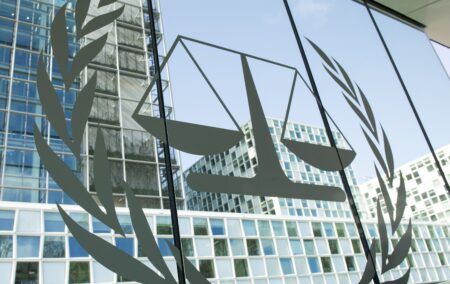In the wake of new sanctions levelled by the United States against four judges of the International Criminal Court, the European Union has been called upon to enact countervailing legislation.
Last week, the US imposed sanctions on four ICC judges, Solomy Balungi Bossa of Uganda, Luz del Carmen Ibanez Carranza of Peru, Reine Alapini-Gansou of Benin and Beti Hohler of Slovenia. This would prohibit US entities from doing business with them.
The ICC has been a target of President Trump’s administration, particularly as a result of an arrest warrant for Israeli Prime Minister Benjamin Netanyahu, as well as for having investigated alleged US crimes in Afghanistan.
US Secretary of State Marco Rubio stated: “The ICC is politicized and falsely claims unfettered discretion to investigate, charge, and prosecute nationals of the United States and our allies. This dangerous assertion and abuse of power infringes upon the sovereignty and national security of the United States and our allies.”
The EU has shot back, with EU Commission President Ursula von der Leyen saying that the bloc pledges its “full support” to the ICC. “The ICC holds perpetrators of the world’s gravest crimes to account & gives victims a voice. It must be free to act without pressure,” she wrote.
Slovenia, home country of one of the sanctioned judges, said that it “rejects pressure on judicial institutions”, and urged the EU to implement its blocking statute. This would forbid European entities from respecting the sanctions. This has been invoked previously in response to US sanctions on Cuba and Iran.
The US has previously sanctioned ICC chief prosecutor Karim Khan. Last month it was reported that his bank accounts and even email account had been frozen, apparently with the relevant companies concerned that they would fall foul of US sanctions.

